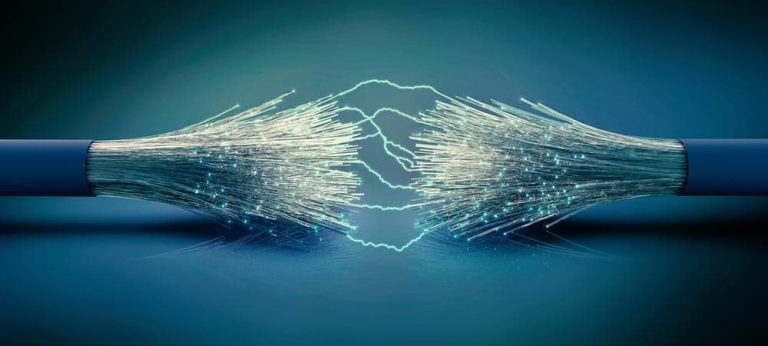Fiber optic cables are becoming more and more popular for use in internet connections. There are several advantages to using fiber optics over traditional copper cables. Fiber optics offer much higher bandwidth than copper cables, which means that they can carry more data. They are also immune to electromagnetic interference, which can be a problem with copper cables. Additionally, fiber optic cables are much thinner and lighter than copper cables, making them easier to install and handle.
One disadvantage of fiber optic cables is that they are more expensive than copper cables. However, the cost difference is gradually decreasing as technology improves and production costs decrease.
One of the main benefits of fiber optic cables is that they offer much higher speeds than traditional copper cables. Fiber optic cables can carry signals at much higher frequencies, which means that more data can be transferred per second. This is why fiber optic cables are often used for high-speed Internet connections.
Another benefit of fiber optic cables is that they are much less susceptible to interference than copper cables. This is because the signal travels through the center of the cable, rather than along the outside. This means that there is less chance for the signal to be interrupted by external factors such as electrical interference.
Reliable
One factor to consider is the type of material used to construct the fiber optic cable. The most common materials used are glass and plastic. Glass is more fragile than plastic and is susceptible to breakage if not handled properly. Plastic is less brittle than glass, but it can be damaged by UV light or other strong chemicals.
When looking at the reliability of fiber optic cables, it is important to first consider the materials that they are made from. Fiber optic cables are typically made from either glass or plastic. Each of these materials has its own advantages and disadvantages when it comes to reliability.
High-Speed Network
The use of fiber optic cables for internet connections has become increasingly popular in recent years. Fiber optic cables are capable of transmitting data at extremely high speeds, making them ideal for internet use. There are a few different types of fiber optic cables, each with its own advantages and disadvantages.
Consistent Speeds
Whether you are downloading a large file or streaming a movie, the speed of your internet connection is important. With fiber optic cables, you can be sure that you will always have a consistent speed, no matter what you are doing online. This is because fiber optic cables are not affected by things like whether or power outages in the same way that other types of internet connections are. This means that you can always rely on your fiber optic cable internet connection to give you the speeds that you need, no matter what.
If you are looking for a TDS fiber internet, you have come to the right place. TDS service partner of buy TV internet phone offers high-speed internet service that is perfect for homes and businesses. TDS has a wide range of plans and speeds to choose from, so you can find the perfect fit for your needs.
No Data Loss
When it comes to data transmission, fiber optics is one of the most reliable methods available. Fiber optic cables are made of extremely thin strands of glass or other transparent material, and they are capable of transmitting data at high speeds with very little loss. In fact, fiber optics is so efficient that it is often used in mission-critical applications where data loss is simply not an option.
If you are looking for an internet service that is both fast and reliable, you cannot go wrong with wave fiber optics. Wave internet service offers some of the fastest internet speeds available, and their service is backed by a 99.9% uptime guarantee. That means you can rest assured that your connection will always be up and running.
Conclusion
There are a number of reasons why fiber optics is so reliable. First, the cables are very thin and flexible, which makes them less likely to be damaged than other types of cables. Second, they are immune to electromagnetic interference, which means that they can transmit data without being disrupted by outside sources.

